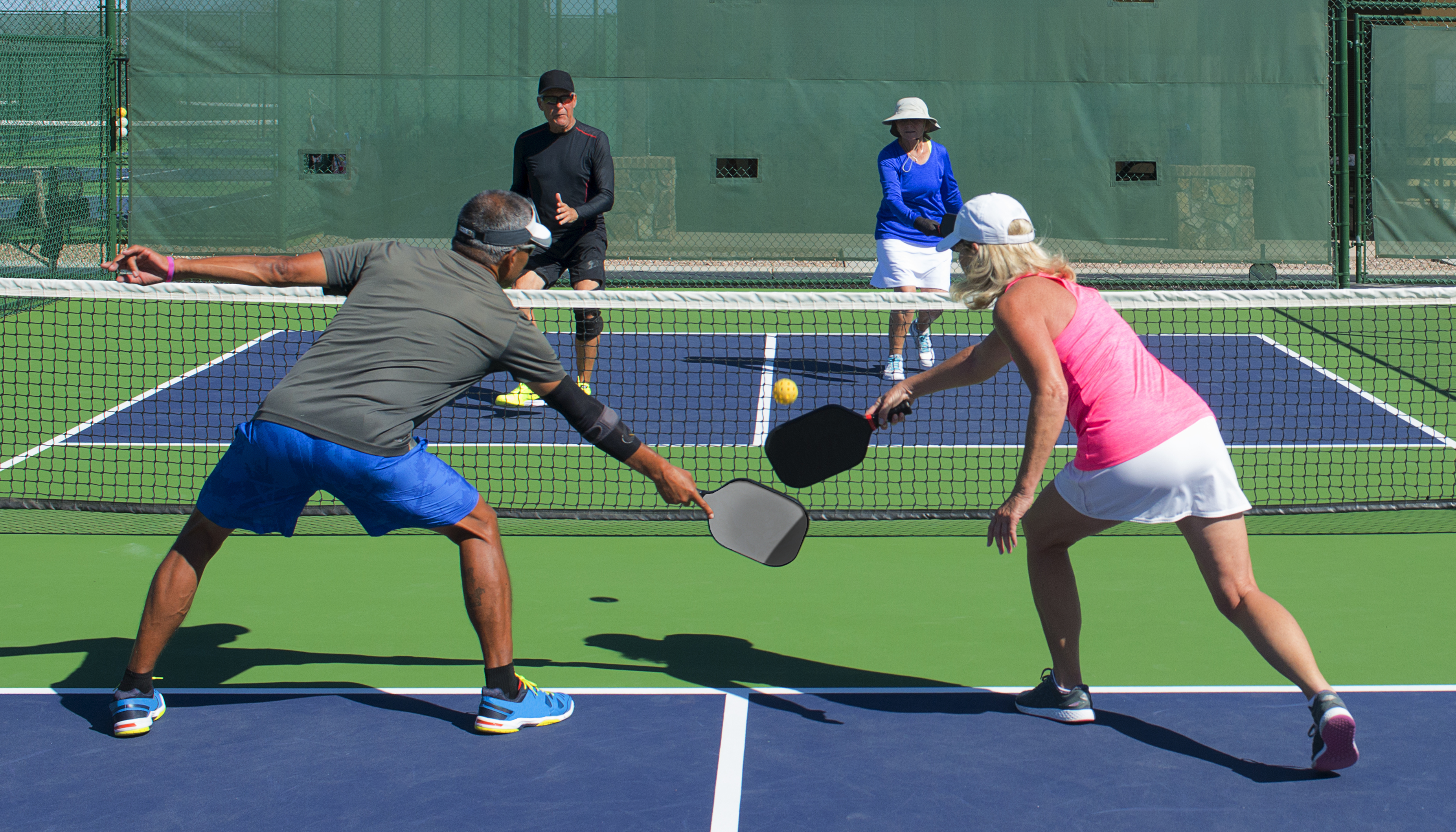Pickleball pain? Here’s what you should know.

Have you recently gotten the pickleball bug? You’re not alone. Pickleball is the fastest growing sport in the country. With courts and leagues popping up across Lexington and the surrounding area – and millions of players across the country – it seems like pickleball is everyone’s favorite new sport.
Pickleball is relatively easy to learn, can be played by people of all ages and is inexpensive to start. But more pickleball players also means more injuries.
Physical Medicine & Rehabilitation physicians Dr. Robert Nickerson and Dr. Dwan Perry share how you can play pain-free pickleball – and what to do if injury strikes.
Pickleball injuries – and what causes them
“While pickleball isn’t as intense as say, football or rugby, there’s still a risk for injury,” says Dr. Nickerson.
In an article published in the Journal of Emergency Medicine in 2020, it was estimated pickleball is responsible for 20,000 injuries per year.
“Patients greater than 50 years of age account for 90 percent of the injuries – with these injuries split evenly between men and women,” says Dr. Nickerson.
Here are a few common pickleball injuries:
• Lower extremities – soft tissue sprains, strains and tears, aggravation of arthritis of hips, knees, ankles and feet, plantar fasciitis.
• Lower back – soft tissue sprains, strains and tears, aggravation of arthritis or degenerative disc disease, or herniated lumbar disc.
• Shoulder – rotator cuff tendonitis or tear.
• Elbow and wrist – tendonitis.
• Eye – ocular injury from being hit by a ball.
• Other various fractures
“The most common injuries are sprain and strains, with fractures from falling coming in a close second,” says Dr. Perry. “The pickleball does not bounce as high as a tennis or racket ball, so
people tend to bend over at the waist when they are playing. This could cause someone to lose their balance and fall forward, which could lead to a fracture.”
Contusions and abrasions, though less common than sprains, strains and fractures, are also possible.
Injury treatment – and how we can help
If you do get hurt, but it’s not too serious, try RICE (rest, ice, compression, elevation). But if your symptoms don’t improve, seek medical attention.
If you have a more concerning injury, like a suspected fracture, go to an emergency room. But if you have a less serious injury, visit a walk-in sports medicine clinic, like the ones at UK HealthCare – Turfland or UK HealthCare – Georgetown.
If symptoms linger, seeing a nonsurgical musculoskeletal rehabilitation medicine specialist or orthopedist is a good option for proper treatment.
“We’re both physiatrists with UK Physical Medicine & Rehabilitation,” says Dr. Nickerson. “That means we’re doctors who specialize in helping people regain function after surgery, a stroke or an injury. We can definitely help you rehab an injury and get back on your feet – and on the court.”
How to stay injury free
Here’s what you can do to minimize your injury risk:
• Set realistic expectations and goals. Have you had a long layoff from exercise? Listen to your body.
• Warm up and stretch. Don’t start out at full speed. Keep a consistent warm-up routine, and stretch your major muscle groups. It only takes 5-10 minutes.
• Learn the fundamentals and correct form. Take a lesson if you can, and learn from veteran players how to use your body properly.
• Recover properly. Cool down and stretch after you play. Stay hydrated and eat enough so your body can fully recover for your next match.
• Get the proper equipment. If you’re playing multiple times a week, it may be time to invest in a pair of tennis-specific shoes. These will help you move better and easier across the court.
Pickleball is a fast growing and fun sport that can be enjoyed by people of all ages, but injuries are common. Remember to take it slow, warm up, use proper equipment and take time to learn proper technique.
Listen to our UK HealthCast podcast with Dr. Nickerson and Dr. Perry discussing pickleball below:






